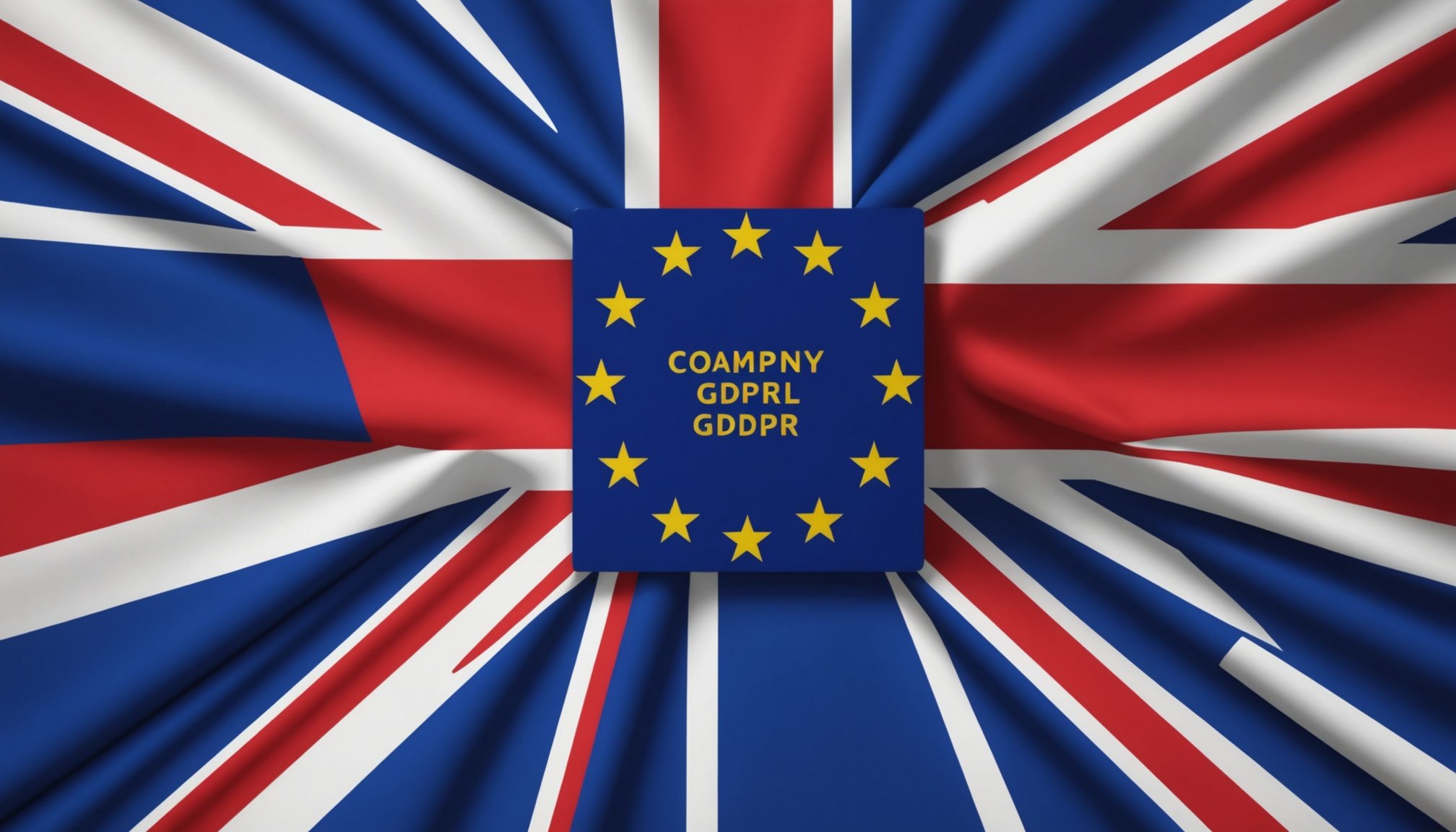Overview of EU GDPR Principles
Understanding the GDPR principles is crucial for both individuals and organisations. These data protection regulations are designed to safeguard personal information and include several core principles such as consent, transparency, and data minimisation.
Consent is one of the fundamental GDPR principles. It requires that individuals give clear and explicit agreement before their data is processed. For example, businesses must obtain a clear opt-in from users rather than relying on pre-checked boxes. This provision ensures personal data rights are respected.
Also to see : Navigating the New Legal Terrain: Effects of Third-Party Cookie Tracking on UK Companies
Transparency mandates that companies clearly communicate how they utilise personal data. This principle compels businesses to be open about their data practices, enabling consumers to understand what happens to their information.
Data minimisation, another critical principle, limits data collection to only what is necessary for specific purposes. Organisations must evaluate their operations and retain the least amount of personal data possible.
Also to discover : Crucial Compliance Requirements for UK Companies Under the Data Protection Act 2018
Understanding personal data rights under GDPR principles is essential for individuals in safeguarding their privacy. Furthermore, these principles significantly impact UK businesses by ensuring their operations align with data protection regulations. Non-compliance can lead to substantial fines, thus propelling firms to adapt quickly.
Steps for UK Businesses to Achieve GDPR Compliance
Navigating GDPR compliance steps is essential for UK businesses to align with business regulations. Establishing a clear roadmap ensures robust protection of personal data.
Conducting a Data Audit
A vital first step involves identifying what personal data is collected and processed. Businesses must meticulously evaluate their data streams to ensure all data protection measures are adequate. This process entails documenting data processing activities, which provides a clear overview and understanding of data flows and usage.
Appointing a Data Protection Officer (DPO)
The DPO’s role is instrumental in ensuring compliance. Their responsibilities encompass monitoring data protection strategies and offering guidance on adherence. It’s crucial that businesses provide ample training and resources for the DPO to effectively carry out their duties. A DPO is especially essential in organisations with large-scale data processing, addressing any potential challenges proactively.
Implementing Data Protection Policies
Develop and enforce clear policies regarding data collection and usage. Employees must be trained on GDPR compliance practices to minimise any risk of breaches. Regular reviews and updates to these policies are necessary to adapt to evolving regulations and ensure continued compliance.
Consistent adherence to these GDPR compliance steps fortifies business operations against potential data breaches and penalties.
Common Pitfalls in GDPR Compliance
Navigating GDPR compliance challenges can be daunting, with several common mistakes to watch for. A major oversight is failing to prioritise consent management. Organisations often underestimate the importance of obtaining explicit consent, leading to legal issues. Ensuring that consent is clear and documented is key to avoiding unnecessary complications.
Another challenge is neglecting to maintain accurate records of data processing. Without thorough documentation, businesses risk non-compliance and the resulting penalties. Detailed records offer a roadmap of data usage, helping organisations remain transparent and accountable.
Additionally, improper training of staff on data protection responsibilities is a frequent pitfall. Employees must be well-versed in GDPR principles to mitigate the risk of data breaches. Regular training sessions and updates on data regulations are crucial for maintaining compliance.
By addressing these GDPR compliance challenges, UK businesses can reduce the risk of fines and sustain their operations more securely. A proactive approach is essential, encouraging companies to refine their strategies and ensure continued adherence to these critical regulations. Emphasising these areas strengthens data protection measures and supports a culture of compliance.
Case Studies of GDPR Implementation
Understanding real-world implementation through GDPR case studies offers valuable insights into both compliance success and failure. Examining these examples helps businesses navigate the complexities of data protection regulations.
Successful Compliance Implementation
One notable example of successful GDPR compliance is a large UK retailer. This company undertook a comprehensive review of its data processing activities, ensuring transparency and accountability in handling customer data. They appointed a well-trained Data Protection Officer (DPO) and involved all departments in the process. Key strategies included clear communication about data usage and implementing stringent access controls. As a result, the business not only avoided penalties but also enhanced customer trust.
Consequences of Non-Compliance
Conversely, a UK-based financial firm faced severe consequences for GDPR violations. They failed to obtain explicit consent for data processing and neglected to maintain accurate records, highlighting critical GDPR compliance challenges. Consequently, the company was fined heavily and suffered reputational damage. This case underscores the importance of regular compliance audits and up-to-date training for all staff members.
By observing these compliance examples, businesses can better understand the importance of adhering to GDPR guidelines, learning from others’ mistakes, and implementing robust data protection measures.
Resources for Further Information and Compliance Tools
Accessing reliable GDPR resources is essential for navigating the complexities of data protection. Official sources such as the Information Commissioner’s Office (ICO) and EU guidelines offer comprehensive information on GDPR compliance tools and guidance. Businesses should regularly refer to these authoritative resources to ensure they meet all data protection regulations effectively.
Various compliance tools can aid in the seamless integration of GDPR practices within an organisation. Popular software solutions provide functionalities like automated data mapping, breach notification, and consent management systems. These tools not only streamline GDPR compliance steps but also help in maintaining accurate records of data processing activities.
For businesses seeking further guidance, numerous templates and checklists are available. These resources can assist in developing clear data protection policies, conducting audits, and training employees. By utilising these aids, companies can ensure their operations align with GDPR requirements while minimising the risk of errors.
Staying informed and equipped with the right tools is crucial for sustaining GDPR compliance. By leveraging a combination of external resources and internal practices, businesses can significantly bolster their data protection efforts.
Summary Checklist for GDPR Compliance
Creating an effective GDPR compliance checklist is crucial for businesses aiming to align with data protection regulations. This checklist should include several key elements that organisations must consistently adhere to.
Begin with a thorough data audit, ensuring that all personal data collection and processing activities are meticulously documented. This not only aids in transparency but also serves as a foundation for compliance.
Appointing a well-trained Data Protection Officer (DPO) is essential, especially for companies with large-scale data activities. They should be empowered with adequate resources and knowledge to oversee compliance efforts.
Develop and implement robust data protection policies. These should cover consent management, data minimisation, and the rights of data subjects. It is vital to regularly review these policies to adapt to any regulatory changes.
Training employees on GDPR principles is another critical component. Regular updates and training sessions ensure that staff remain aware of their responsibilities, reducing the risk of data breaches.
Businesses should schedule regular compliance audits to assess their practices. This proactive approach encourages ongoing evaluation and adaptation, fostering a culture of transparency and accountability in data protection.











